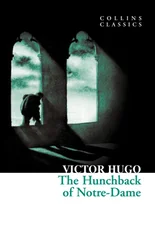Victor Hugo - The Man Who Laughs
Здесь есть возможность читать онлайн «Victor Hugo - The Man Who Laughs» — ознакомительный отрывок электронной книги совершенно бесплатно, а после прочтения отрывка купить полную версию. В некоторых случаях можно слушать аудио, скачать через торрент в формате fb2 и присутствует краткое содержание. Жанр: literature_19, foreign_antique, foreign_prose, на английском языке. Описание произведения, (предисловие) а так же отзывы посетителей доступны на портале библиотеки ЛибКат.
- Название:The Man Who Laughs
- Автор:
- Жанр:
- Год:неизвестен
- ISBN:нет данных
- Рейтинг книги:3 / 5. Голосов: 1
-
Избранное:Добавить в избранное
- Отзывы:
-
Ваша оценка:
- 60
- 1
- 2
- 3
- 4
- 5
The Man Who Laughs: краткое содержание, описание и аннотация
Предлагаем к чтению аннотацию, описание, краткое содержание или предисловие (зависит от того, что написал сам автор книги «The Man Who Laughs»). Если вы не нашли необходимую информацию о книге — напишите в комментариях, мы постараемся отыскать её.
The Man Who Laughs — читать онлайн ознакомительный отрывок
Ниже представлен текст книги, разбитый по страницам. Система сохранения места последней прочитанной страницы, позволяет с удобством читать онлайн бесплатно книгу «The Man Who Laughs», без необходимости каждый раз заново искать на чём Вы остановились. Поставьте закладку, и сможете в любой момент перейти на страницу, на которой закончили чтение.
Интервал:
Закладка:
The Comprachicos, allowing for the shade which divides a trade from a fanaticism, were analogous to the Stranglers of India. They lived among themselves in gangs, and to facilitate their progress, affected somewhat of the merry-andrew. They encamped here and there, but they were grave and religious, bearing no affinity to other nomads, and incapable of theft. The people for a long time wrongly confounded them with the Moors of Spain and the Moors of China. The Moors of Spain were coiners, the Moors of China were thieves. There was nothing of the sort about the Comprachicos; they were honest folk. Whatever you may think of them, they were sometimes sincerely scrupulous. They pushed open a door, entered, bargained for a child, paid, and departed. All was done with propriety.
They were of all countries. Under the name of Comprachicos fraternized English, French, Castilians, Germans, Italians. A unity of idea, a unity of superstition, the pursuit of the same calling, make such fusions. In this fraternity of vagabonds, those of the Mediterranean seaboard represented the East, those of the Atlantic seaboard the West. Many Basques conversed with many Irishmen. The Basque and the Irishman understand each other – they speak the old Punic jargon; add to this the intimate relations of Catholic Ireland with Catholic Spain – relations such that they terminated by bringing to the gallows in London one almost King of Ireland, the Celtic Lord de Brany; from which resulted the conquest of the county of Leitrim.
The Comprachicos were rather a fellowship than a tribe; rather a residuum than a fellowship. It was all the riffraff of the universe, having for their trade a crime. It was a sort of harlequin people, all composed of rags. To recruit a man was to sew on a tatter.
To wander was the Comprachicos' law of existence – to appear and disappear. What is barely tolerated cannot take root. Even in the kingdoms where their business supplied the courts, and, on occasions, served as an auxiliary to the royal power, they were now and then suddenly ill-treated. Kings made use of their art, and sent the artists to the galleys. These inconsistencies belong to the ebb and flow of royal caprice. "For such is our pleasure."
A rolling stone and a roving trade gather no moss. The Comprachicos were poor. They might have said what the lean and ragged witch observed, when she saw them setting fire to the stake, "Le jeu n'en vaut pas la chandelle." It is possible, nay probable (their chiefs remaining unknown), that the wholesale contractors in the trade were rich. After the lapse of two centuries, it would be difficult to throw any light on this point.
It was, as we have said, a fellowship. It had its laws, its oaths, its formulæ – it had almost its cabala. Any one nowadays wishing to know all about the Comprachicos need only go into Biscaya or Galicia; there were many Basques among them, and it is in those mountains that one hears their history. To this day the Comprachicos are spoken of at Oyarzun, at Urbistondo, at Leso, at Astigarraga. Aguardate niño, que voy a llamar al Comprachicos – Take care, child, or I'll call the Comprachicos – is the cry with which mothers frighten their children in that country.
The Comprachicos, like the Zigeuner and the Gipsies, had appointed places for periodical meetings. From time to time their leaders conferred together. In the seventeenth century they had four principal points of rendezvous: one in Spain – the pass of Pancorbo; one in Germany – the glade called the Wicked Woman, near Diekirsch, where there are two enigmatic bas-reliefs, representing a woman with a head and a man without one; one in France – the hill where was the colossal statue of Massue-la-Promesse in the old sacred wood of Borvo Tomona, near Bourbonne les Bains; one in England – behind the garden wall of William Challoner, Squire of Gisborough in Cleveland, Yorkshire, behind the square tower and the great wing which is entered by an arched door.
VI
The laws against vagabonds have always been very rigorous in England. England, in her Gothic legislation, seemed to be inspired with this principle, Homo errans fera errante pejor . One of the special statutes classifies the man without a home as "more dangerous than the asp, dragon, lynx, or basilisk" ( atrocior aspide, dracone, lynce, et basilico ). For a long time England troubled herself as much concerning the gipsies, of whom she wished to be rid as about the wolves of which she had been cleared. In that the Englishman differed from the Irishman, who prayed to the saints for the health of the wolf, and called him "my godfather."
English law, nevertheless, in the same way as (we have just seen) it tolerated the wolf, tamed, domesticated, and become in some sort a dog, tolerated the regular vagabond, become in some sort a subject. It did not trouble itself about either the mountebank or the travelling barber, or the quack doctor, or the peddler, or the open-air scholar, as long as they had a trade to live by. Further than this, and with these exceptions, the description of freedom which exists in the wanderer terrified the law. A tramp was a possible public enemy. That modern thing, the lounger, was then unknown; that ancient thing, the vagrant, was alone understood. A suspicious appearance, that indescribable something which all understand and none can define, was sufficient reason that society should take a man by the collar. "Where do you live? How do you get your living?" And if he could not answer, harsh penalties awaited him. Iron and fire were in the code: the law practised the cauterization of vagrancy.
Hence, throughout English territory, a veritable "loi des suspects" was applicable to vagrants (who, it must be owned, readily became malefactors), and particularly to gipsies, whose expulsion has erroneously been compared to the expulsion of the Jews and the Moors from Spain, and the Protestants from France. As for us, we do not confound a battue with a persecution.
The Comprachicos, we insist, had nothing in common with the gipsies. The gipsies were a nation; the Comprachicos were a compound of all nations – the lees of a horrible vessel full of filthy waters. The Comprachicos had not, like the gipsies, an idiom of their own; their jargon was a promiscuous collection of idioms: all languages were mixed together in their language; they spoke a medley. Like the gipsies, they had come to be a people winding through the peoples; but their common tie was association, not race. At all epochs in history one finds in the vast liquid mass which constitutes humanity some of these streams of venomous men exuding poison around them. The gipsies were a tribe; the Comprachicos a freemasonry – a masonry having not a noble aim, but a hideous handicraft. Finally, their religions differ – the gipsies were Pagans, the Comprachicos were Christians, and more than that, good Christians, as became an association which, although a mixture of all nations, owed its birth to Spain, a devout land.
They were more than Christians, they were Catholics; they were more than Catholics, they were Romans, and so touchy in their faith, and so pure, that they refused to associate with the Hungarian nomads of the comitate of Pesth, commanded and led by an old man, having for sceptre a wand with a silver ball, surmounted by the double-headed Austrian eagle. It is true that these Hungarians were schismatics, to the extent of celebrating the Assumption on the 29th August, which is an abomination.
In England, so long as the Stuarts reigned, the confederation of the Comprachicos was (for motives of which we have already given you a glimpse) to a certain extent protected. James II., a devout man, who persecuted the Jews and trampled out the gipsies, was a good prince to the Comprachicos. We have seen why. The Comprachicos were buyers of the human wares in which he was dealer. They excelled in disappearances. Disappearances are occasionally necessary for the good of the state. An inconvenient heir of tender age whom they took and handled lost his shape. This facilitated confiscation; the tranfer of titles to favourites was simplified. The Comprachicos were, moreover, very discreet and very taciturn. They bound themselves to silence, and kept their word, which is necessary in affairs of state. There was scarcely an example of their having betrayed the secrets of the king. This was, it is true, for their interest; and if the king had lost confidence in them, they would have been in great danger. They were thus of use in a political point of view. Moreover these artists furnished singers for the Holy Father. The Comprachicos were useful for the Miserere of Allegri. They were particularly devoted to Mary. All this pleased the papistry of the Stuarts. James II. could not be hostile to holy men who pushed their devotion to the Virgin to the extent of manufacturing eunuchs. In 1688 there was a change of dynasty in England: Orange supplanted Stuart. William III. replaced James II.
Читать дальшеИнтервал:
Закладка:
Похожие книги на «The Man Who Laughs»
Представляем Вашему вниманию похожие книги на «The Man Who Laughs» списком для выбора. Мы отобрали схожую по названию и смыслу литературу в надежде предоставить читателям больше вариантов отыскать новые, интересные, ещё непрочитанные произведения.
Обсуждение, отзывы о книге «The Man Who Laughs» и просто собственные мнения читателей. Оставьте ваши комментарии, напишите, что Вы думаете о произведении, его смысле или главных героях. Укажите что конкретно понравилось, а что нет, и почему Вы так считаете.












